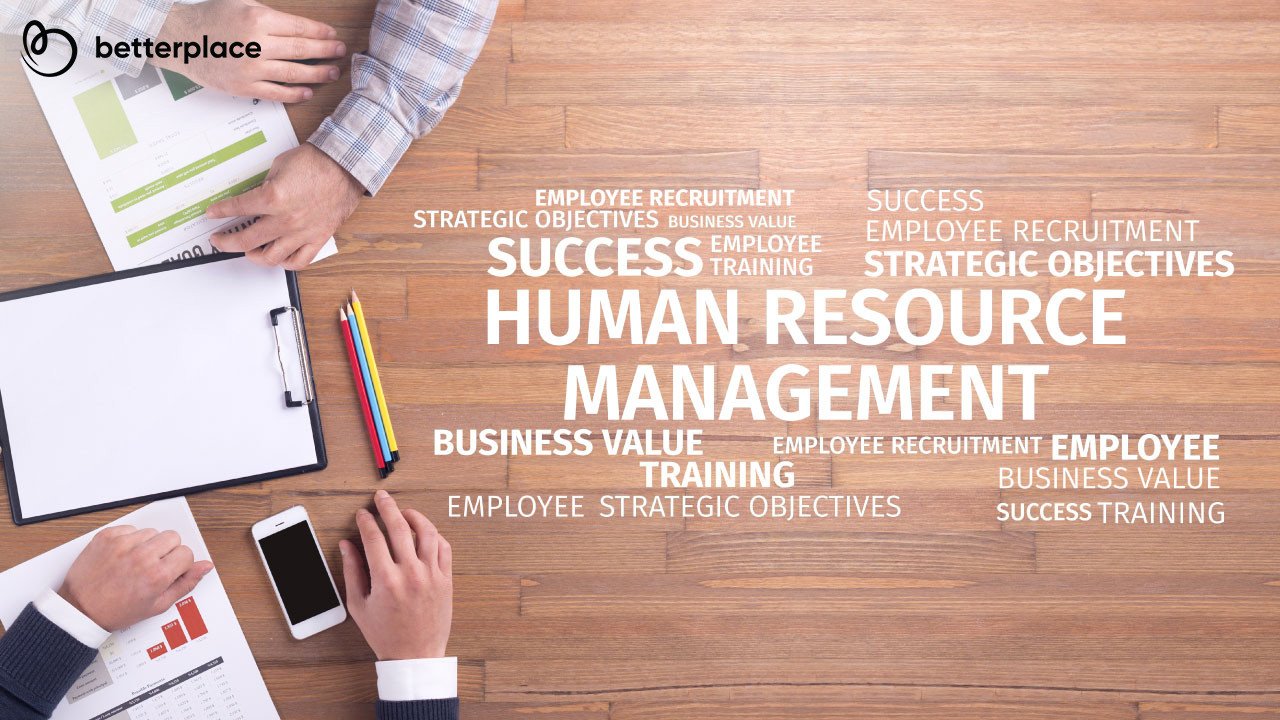Human Resource Management : Benefits and Key Issues
Introduction
The success of a particular firm and its reputation in the market are largely determined by proper management in the contemporary business climate. Controlling the workforce, in particular the division of immediate responsibilities, is one of the responsibilities of heads. The importance of this practise is in the ability of skilled and qualified people to complete a variety of worthwhile activities, which is a priority for most businesses. Individual and collaboration are crucial in the context of all operations.
Different approaches and methodologies are used in human resource management (HRM), a distinct profession, to organise all of the production processes that employees participate in. According to Bratton and Gold's definition of this field (2017, p. 3), this kind of activity is meant to control staffing levels and the practical operations of employees, so promoting "labour market flexibility." Because of this, the methods that hiring and retention experts employ today change according to the objectives of organisations and their current requirements.
The goal of this book is to outline the essential components of HRM as a distinct activity within the context of the contemporary business environment. The objectives are to assess the significance of this practise in connection to contemporary organisations, to outline the benefits of this practise for businesses and for employees themselves, and to categorise the major problems that HRM specialists deal with on a daily basis. Relevant academic materials will be used as sources for supporting specific theories and suppositions to support particular concepts. Given the significance of recruiting and retaining skilled workers as well as coordinating and distributing the workforce in accordance with businesses' current needs and market conditions, human resource management (HRM) is the activity area that has a direct impact on the success of business organisations.
Importance of Human Resource Management
Leaders work to guarantee that subordinates carry out the assigned responsibilities attentively and professionally because the staff of any organisation is the executor of all managers' instructions. HRM practises are crucial to the success and productivity of businesses in this regard. A firm's personnel policy is the area that significantly impacts production outcomes and the sustainability of a company, regardless of the size of the company or its position in the market. The leadership has the option to conduct flexible activities and turn to numerous innovations and adjustments in the operational mode if staff are chosen correctly. As a result, HRM is crucial in modern businesses since it may boost productivity by implementing smart hiring and retention strategies.
In addition to considering production goals and other internal tasks, maintaining a reliable and effective employee management system is crucial. According to Albrecht et al. (2015), the organisational environment largely depends on how HRM strategies are geared toward maintaining the comfort of subordinates. The requirements that management presents to employees may be worded differently, and the effectiveness of the interactions between team members and leaders directly affects the team's attitude and the willingness of its members to fully reach their professional potential. Consequently, the HRM concepts that leaders uphold determine both the organisational and production sides of personnel operations.
One may observe the variety of ways to people control given the significance of HRM practises for modern firms. According to Albrecht et al. (2015), it is feasible to preserve the operating mode that is appropriate at a specific stage thanks to those recommendations for HR practises that influence many facets of engagement with staff, such as selection, training, socialising, and other nuances. As a result, a number of factors, including goal-setting, microclimate coordination, and the use of various personnel solutions, help to explain the significance of HRM operations in today's firms.
Benefits of Human Resource Management to Employees
Work at some firms is frequently linked to the heavy workload that employees endure and the overly complex demands made by executives. According to Guest (2017), competent management should use the proper HRM strategies if a company's employees are concerned about difficult working conditions and feel that their personal comfort is in danger. These procedures in turn are intended to set up a production regime and assist subordinates, so displaying management's concern for employees' welfare. As a result, programmes that effectively evaluate performance and train specialists are beneficial for both companies and employees.
The diversity of current approaches is one of the important elements of HRM work in sustaining the wellbeing of subordinates. Guest (2017, p. 23) refers to "the development in job flexibility" and contends that because of the beneficial management interaction techniques, employees have the chance to more effectively arrange their work-life balance. By fostering productive activities, employers can help employees focus on completing their given duties and fully achieving their professional potential without being diverted by outside chores that are not part of their immediate obligations.
According to academic research, as Guest (2017) notes, this manner of operation increases subordinates' productivity and piques their desire in accomplishing more ambitious objectives. Therefore, skill development and the use of professional competences are linked to the benefits that employees obtain from effective HRM practises.
By upholding strong HRM practises, staff may keep communications with management clear. According to Guest (2017), miscommunication and divergent viewpoints on subordinates' personal accountability frequently contribute to the contradictory consequences of subordinates' interactions with organisational leaders. The use of the essential team management concepts enables the suppression of any contentious situations and competently coordinates the worker's actions, so granting them more autonomy.
Benefits of Human Resource Management to Organizations
The adoption of HRM-related approaches has value for firms in addition to benefits for personnel. According to Boon et al. (2018), one of the key benefits of effective human management is the chance to meet the objectives that businesses set. By being able to coordinate subordinates' actions in accordance with the market's current needs and demands, an organisation can avoid the challenges of sustaining a certain course of action, fending off competitors, and building up capital through the execution of plans. Avoiding insolvency and other financial issues brought on by insufficiently efficient work and a lack of employee initiative are the results of this endeavour. As a result, business organisations place a high value on pertinent HRM practises.
The benefits of HRM practises go beyond stable capital accumulation and the acquisition of advantageous market positions. Boon et al. (2018) claim that effective personnel management is the key to cost reduction by judiciously allocating time and resources for staff training. The author also claims that companies won't experience legal problems or difficulties as a result of workers' complaints about their unsatisfactory working conditions (Boon et al. 2018).
Disagreements are avoided with proper management, which prevents all operational problems and lowers labour productivity. If the workforce is content with the way things are going right now and is willing to be flexible in how given duties are completed, this not only benefits firms financially but also provides additional motivation and support for implementing novel ideas to boost productivity. Business executives might thus gain from utilising effective HRM strategies.
Key Issues of Human Resource Management in Today’s Organizations
Despite the significance of HRM practises for businesses and workers alike, there are several problems in this field of work that have an impact on various stakeholders. It may be challenging for those who create hiring and HR programmes to "grow individuals in accordance to global environmental elements as well as international marketplace," as Nasir (2017, p. 2017) observes. Subordinates are frequently given organisational assignments that do not necessarily include all the necessary components of an activity. As a result, managers are compelled to develop new methods to help workers effectively complete their immediate tasks as well as adapt to current external factors like rising competition or changing customer demands. As a result of the high dynamics of the market.
An important component of corporate policy where distinct levels of communication are maintained is the ethics of the manager-subordinate relationship. The concerns of different cultural preferences, arguments based on gender or race, and other problems make it very difficult to control personnel. In a contemporary company climate where much depends on the assiduity of employees and the cohesion of the team, finding solutions to these problems is a key task. As a result, carefully chosen and implemented HRM practises are crucial operational components of the majority of contemporary firms that adhere to corporate culture principles and valuable means of communication between leadership and subordinates.
Conclusion, Findings, and Recommendations
When summarising the findings of the assessment and analysis of the significance of HRM techniques and their applicability, it is important to note that the procedures used to effectively control the hiring process and the actions of subordinates serve as useful tools for both businesses and workers. Production success, market acceptance, and financial elements are significantly influenced by the workplace environments that organisations construct for engaging with their employees.
One of the effects of using appropriate personnel management strategies is the growth of employees' professional competencies. There are a variety of factors that might affect how well HR specialists perform their jobs, and the secret to effective management of resources and subordinate communication is to stay abreast of the businesses' current demands. In order to establish a steady operating mode and prevent the degradation of production outcomes due to badly planned HR operations, it is crucial to address the issues brought on by numerous causes in a timely manner.
In the contemporary corporate environment, finding new personnel and keeping them on board are essential jobs, and the creation of the appropriate procedures is highly valuable given the capacity to maintain stable operations for businesses.
According to the research's findings from the academic sources used in this study, the analysis of the topic of HRM's significance in modern business organisations is the focus of several scholarly works. The significance of HR professionals' duties and their professional competencies can be stated through the evaluation of hypotheses and assumptions regarding the contribution of unique ways to preserving effective interaction between managers and subordinates.
The most important components of the majority HRM strategies pushed in commercial organisations are the credentials of employees, their capacity to do immediate responsibilities responsibly and conscientiously, and their adherence to company culture. One of the effects of the inadequately developed principles of the work process organisation is the possibility of internal disputes among coworkers, in addition to the difficulties brought on by miscommunication between employees and management. The results generally support the idea that organising human management activities is a crucial undertaking in today's business world.
Specialists in charge of promoting acceptable methods should pay greater attention to the way of engaging and retaining talented staff as a proposal to develop HRM practises and enhance communication between employees and organisation leaders. By taking this action, leaders will be able to bring necessary innovations fast and effectively while also ensuring that businesses run smoothly. A worthwhile undertaking is the competent appraisal of corporate culture as a component of activities.
It will be possible for team members to engage productively and it will be a valuable practise that may assist avoid disagreements for a variety of reasons. Due to a competitive climate, dynamic client demand, and constantly shifting market needs, managers' interest in establishing and implementing guidelines for supervising subordinates is often considered to be an important component of activities. In any company, organisational work includes establishing the circumstances for HRM promotion, and all stakeholders should get involved in putting these requirements into practise.





